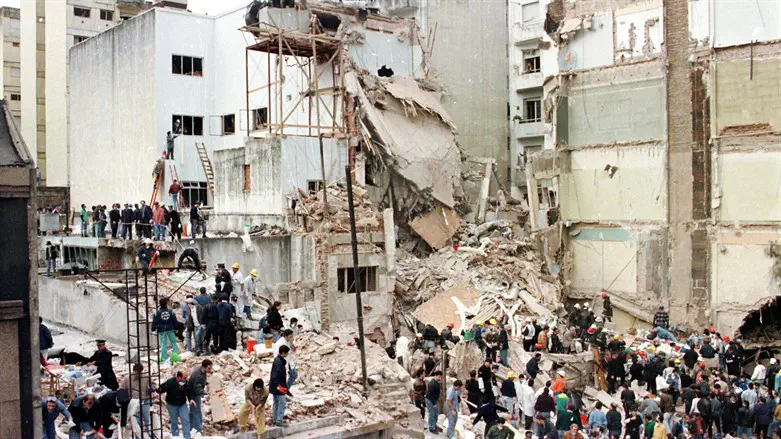
B’nai Brith Canada called on the Canadian government to use is legal authority to list as suspects the five Iranians who are on the Interpol Red Notice ledger for the 1994 bombing of the Jewish Community Centre (AMIA) in Buenos Aires, Argentina.
“The Justice for Victims of Corrupt Foreign Officials Act enables Canada to restrict dealings in property and freeze the assets of those listed,” B’nai Brith said in a statement, urging the government to make use of the act in this case.
A recent Mossad investigation found that Iran likely supported and funded the AMIA attack which was carried out by a secret Hezbollah unit.
None of the perpetrators of the bombing were ever brought to justice.
“In addition to freezing their assets and outlawing any dealings with them, the Justice for Victims of Corrupt Foreign Officials Act bars gross human rights abusers from entering Canada,” said Marvin Rotrand, National Director of B’nai Brith’s League for Human Rights. “The regulation under the law already lists culprits who are nationals of Venezuela, South Sudan, Myanmar, Russia and Saudi Arabia, yet none is listed from Iran.”
B’nai Brith noted that the Canadian government has used the Special Economic Measures Act, which also allows for sanctions, and does have a Special Economic Measures Regulation directed specifically against Iran. But none of the five Iranians who have Interpol Red Notices for complicity in the AMIA bombing are listed.
“B’nai Brith believes that, even if enacted, these measures alone are not sufficient to dissuade Iran from its terrorist activities. As a result, B’nai Brith has formally asked the government to follow our allies, including the United States and the United Kingdom, in listing the IRGC as a terrorist entity,” B’nai Brith said.
The advocacy organization noted that Canada’s parliament in June 2018 passed a motion overwhelmingly calling on the government to list the IRGC as a terrorist entity. However, over four years later, the measure has not taken place.
“It is impossible to understand this unreasonable delay, which is why B’nai Brith continues to pursue this national security issue before the courts,” B’nai Brith Canada CEO Michael Mostyn said.
